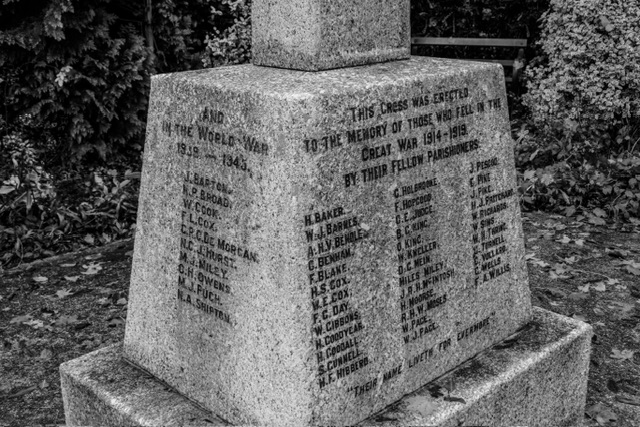Remembering the Forgotten Fallen
Posted on November 11, 2023
By coincidence, I walked past the little ‘Lest We Forget’ monument in St Mary Bourne yesterday. It is ever so well looked after and features, staggeringly, around 45 people from just this one small parish who were killed between 1914-1918.
As I read through the names, I couldn’t help try and think of them individually. Who were the brave and foolhardy, who were the pacifists who didn’t want to die and kill others, and who were the politically astute getting dragged into the madness of it all, against their will. If for example, I was called up under the instructions of Suella Braverman, I’d rather kill myself than fight her corner.
The End of WWI
I have often wondered if perhaps, it was a different time. A time where everyone was brave and allegiance was just something you did as a matter of cause. Was it a time where everyone was brave and willing to fight to the death for King and Country? When life was cheaper and there was honour in imminent slaughter.
if you dig deeper into history you will see things these bullish commemorations choose to ignore. Mutinies and the revolutions that swept across Russia and Germany and to a lesser extent, Britain and France and Bulgaria. These events were key to ending WWI because tens of thousands of men from all sides, looked opposite them and saw a fellow working class man being used as cannon fodder. Something like 80% of first shots fired were above the head of the enemy. The best soldiers were the psychopaths who, if not at war, would have been in prison for murder.
The 1930s
As fascism took hold in the 1930’s, much of Europe, In Rome, Paris, Vienna, Berlin, London and Madrid, fascism was the new ideology in town. Kings, queens and aristocrats all indulged in the trendy new order. Our very own Sir Oswald Moseley, a towering intellectual and an aristocrat who featured in the Vanity Fair ‘Wedding of the Year’, was an emerging political force with the British Union of Fascists.
The reason fascism failed is because of the resistance. In Britain, the people didn’t want Moseley. In Cable Street, Birmingham, Liverpool and Manchester he was pelted off stage and cracked over the head with chair legs. Government’s see which way the people are heading and follow them. This led to Moseley being interned for the war effort and The Daily Mail reluctantly withdrawing media and financial support (It’s still owned by the same mob).
The War and the Ehrenfeld Resistance
We are led to believe that everyone in Germany was a Nazi once Hitler’s authoritarian regime took hold. Yet, all over the country, there was resistance. Terror groups emerged from the back streets and men and women hid Jews in their attics and cellars. I’d argue these people are braver than any soldier as they knew the SS would get them eventually.
Here’s just on example for you to think on. On the 10th November, 1944, 13 members of the Ehrenfeld anti-Nazi resistance group were hung in the street by the Gestapo. The leader was Hans Steinbruck. He had escaped a concentration camp and formed a Nazi resistance group. They stockpiled weapons and shot several SS Officers. Six of the members hung were also members of the anti-Nazi youth group, The Edelweiss Pirates. In Cologne alone, there were 3,000 pirates who fought running battles with the Hitler Youth. They also indulged in sabotaging the military and shooting Nazis. Heroes, all.
Rebellion and Mutiny
Without rebellion, mutiny, sabotage and widespread resistance to fascism, who knows how the madness of it all would have ended? So whether it was people of London, Liverpool, Birmingham or Manchester, who stoned Moseley, or those across Europe who rose up and sabotaged the Nazis, perhaps we should check for who decides who the heroes of war are.
Those who resisted should be remembered equally. I’d argue that the resistors were the bravest of them all.

Got something to say?